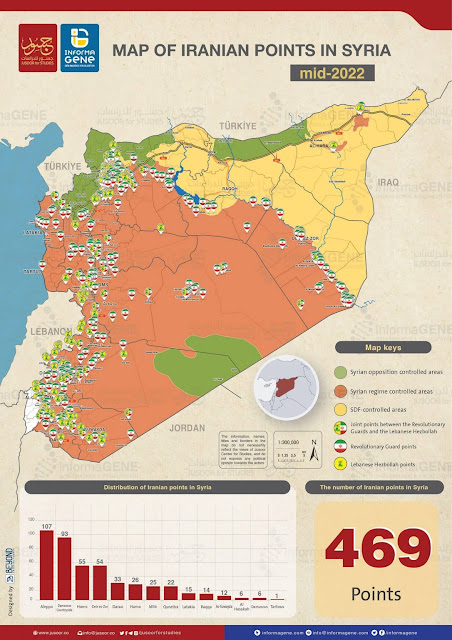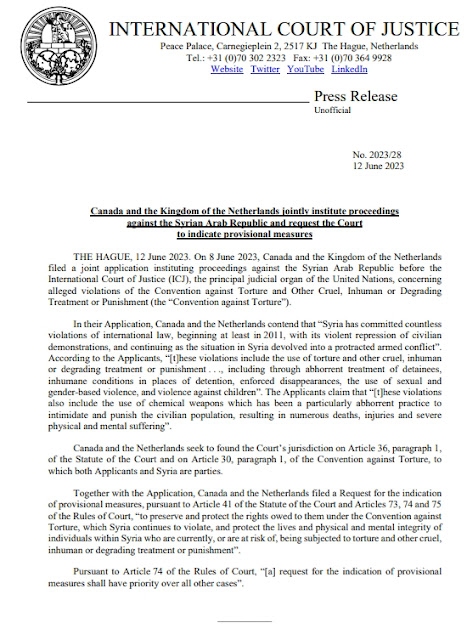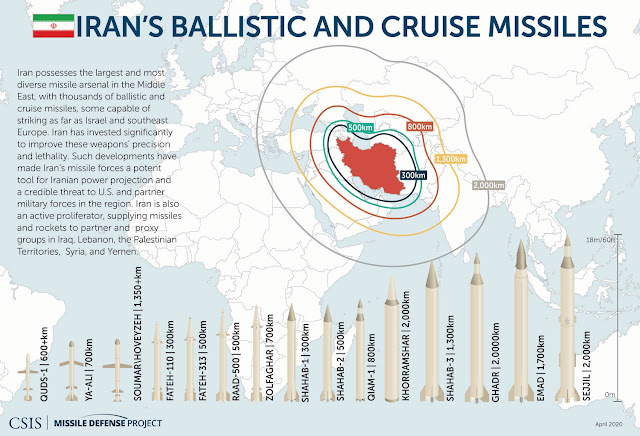U.S. Ambassador Urges Iraq to Respect Equal Rights in Constitution
Constitutional committee enters final week of discussions on Iraqi charter
As Iraqi leaders entered the final week of discussions before the August 15 deadline to complete the drafting of Iraq’s new constitution, U.S. Ambassador to Iraq Zalmay Khalilzad urged the constitutional committee to forge a document that guarantees equal rights and opportunities to all Iraqi citizens and ensures that no community is oppressed, marginalized or excluded.
“There can be no compromise on the principle that Iraqis can each have an equal role in the building of their country’s future without regard to their ethnic or religious background or gender,” Khalilzad said in an August 6 statement after meeting with leaders from several minority communities.
According to the Transitional Administrative Law, the constitutional committee has until August 15 to present a draft constitution. Iraqi leaders have indicated that the committee expects to meet its deadline. Iraqi voters will then have the opportunity to pass judgment on the proposed document in a nationwide referendum October 15.
In an August 7 statement, Khalilzad said the constitutional committee has “the opportunity to lay the foundation for a new Iraq, one that will serve as a democratic model for the region and help Iraq take its proper place in the international community.”
The U.S. ambassador said the constitution “should ensure a vibrant and healthy relationship between the people and government of Iraq, and create trust within its institutions.”
If the Iraqi voters ratify the constitution in the October referendum, the document will serve as the basis for a new round of national elections to be held in December.
Following are the texts of Khalilzad’s August 6 and August 7 statements:
(begin text)
Embassy of the United States of AmericaBaghdad, Iraq
STATEMENT BY AMBASSADOR ZALMAY KHALILZAD ON MEETING WITH RELIGIOUS AND ETHNIC MINORITY LEADERS SATURDAY, AUGUST 6, 2005
Today I had the opportunity to meet with several leaders of different religious and ethnic minority groups here in Iraq. We had a lengthy discussion about their concerns with regard to the Constitution. I assured them that the United States believes strongly that the Iraqi Constitution should provide equal rights before the law for all Iraqis regardless of gender, race, ethnicity, religion or sect. We will work as hard as we can to achieve this goal.
During our meeting I discussed with these leaders the process of forging a national compact to be enshrined in the Constitution. If Iraq is to succeed, its people need a vision for the future, a vision of a country in which all Iraqis are able to participate and in which all people can have trust in the nation’s institutions. There can be no compromise on the principle that Iraqis can each have an equal role in the building of their country’s future without regard to their ethnic or religious background or gender.
Tomorrow the Iraqi leaders begin to meet to finalize the draft Constitution. I am hopeful that as these leaders gather and as the final document emerges, they will lay a foundation for a new Iraqi nation where all of its citizens are able to participate and no community is oppressed, marginalized or excluded. The hopes of the Iraqi people and the eyes of the world will be focused on these leaders. I wish them all the best with the challenge that lies before them.
(end August 6 statement)
(begin August 7 statement)
STATEMENT BY AMBASSADOR ZALMAY KHALILZADAugust 7, 2005
I want to wish the Iraqi leaders assembling in Baghdad today all the best, as they begin to work out the final draft of Iraq’s new Constitution. They have the opportunity to lay the foundation for a new Iraq, one that will serve as a democratic model for the region and help Iraq take its proper place in the international community.
All sides will need to make compromises, but should feel that their essential needs are met. The United States believes strongly that the Iraqi Constitution should provide equal rights before the law for all Iraqis regardless of gender, race, ethnicity, religion or sect. It should ensure a vibrant and healthy relationship between the people and government of Iraq, and create trust within its institutions.
The hopes of the Iraqi people and the eyes of the world will be focused on them. I am confident Iraq’s leaders will achieve success for both.
(end text)
Source: International Information Programs, U.S. Department of State
Constitutional committee enters final week of discussions on Iraqi charter
As Iraqi leaders entered the final week of discussions before the August 15 deadline to complete the drafting of Iraq’s new constitution, U.S. Ambassador to Iraq Zalmay Khalilzad urged the constitutional committee to forge a document that guarantees equal rights and opportunities to all Iraqi citizens and ensures that no community is oppressed, marginalized or excluded.
“There can be no compromise on the principle that Iraqis can each have an equal role in the building of their country’s future without regard to their ethnic or religious background or gender,” Khalilzad said in an August 6 statement after meeting with leaders from several minority communities.
According to the Transitional Administrative Law, the constitutional committee has until August 15 to present a draft constitution. Iraqi leaders have indicated that the committee expects to meet its deadline. Iraqi voters will then have the opportunity to pass judgment on the proposed document in a nationwide referendum October 15.
In an August 7 statement, Khalilzad said the constitutional committee has “the opportunity to lay the foundation for a new Iraq, one that will serve as a democratic model for the region and help Iraq take its proper place in the international community.”
The U.S. ambassador said the constitution “should ensure a vibrant and healthy relationship between the people and government of Iraq, and create trust within its institutions.”
If the Iraqi voters ratify the constitution in the October referendum, the document will serve as the basis for a new round of national elections to be held in December.
Following are the texts of Khalilzad’s August 6 and August 7 statements:
(begin text)
Embassy of the United States of AmericaBaghdad, Iraq
STATEMENT BY AMBASSADOR ZALMAY KHALILZAD ON MEETING WITH RELIGIOUS AND ETHNIC MINORITY LEADERS SATURDAY, AUGUST 6, 2005
Today I had the opportunity to meet with several leaders of different religious and ethnic minority groups here in Iraq. We had a lengthy discussion about their concerns with regard to the Constitution. I assured them that the United States believes strongly that the Iraqi Constitution should provide equal rights before the law for all Iraqis regardless of gender, race, ethnicity, religion or sect. We will work as hard as we can to achieve this goal.
During our meeting I discussed with these leaders the process of forging a national compact to be enshrined in the Constitution. If Iraq is to succeed, its people need a vision for the future, a vision of a country in which all Iraqis are able to participate and in which all people can have trust in the nation’s institutions. There can be no compromise on the principle that Iraqis can each have an equal role in the building of their country’s future without regard to their ethnic or religious background or gender.
Tomorrow the Iraqi leaders begin to meet to finalize the draft Constitution. I am hopeful that as these leaders gather and as the final document emerges, they will lay a foundation for a new Iraqi nation where all of its citizens are able to participate and no community is oppressed, marginalized or excluded. The hopes of the Iraqi people and the eyes of the world will be focused on these leaders. I wish them all the best with the challenge that lies before them.
(end August 6 statement)
(begin August 7 statement)
STATEMENT BY AMBASSADOR ZALMAY KHALILZADAugust 7, 2005
I want to wish the Iraqi leaders assembling in Baghdad today all the best, as they begin to work out the final draft of Iraq’s new Constitution. They have the opportunity to lay the foundation for a new Iraq, one that will serve as a democratic model for the region and help Iraq take its proper place in the international community.
All sides will need to make compromises, but should feel that their essential needs are met. The United States believes strongly that the Iraqi Constitution should provide equal rights before the law for all Iraqis regardless of gender, race, ethnicity, religion or sect. It should ensure a vibrant and healthy relationship between the people and government of Iraq, and create trust within its institutions.
The hopes of the Iraqi people and the eyes of the world will be focused on them. I am confident Iraq’s leaders will achieve success for both.
(end text)
Source: International Information Programs, U.S. Department of State


